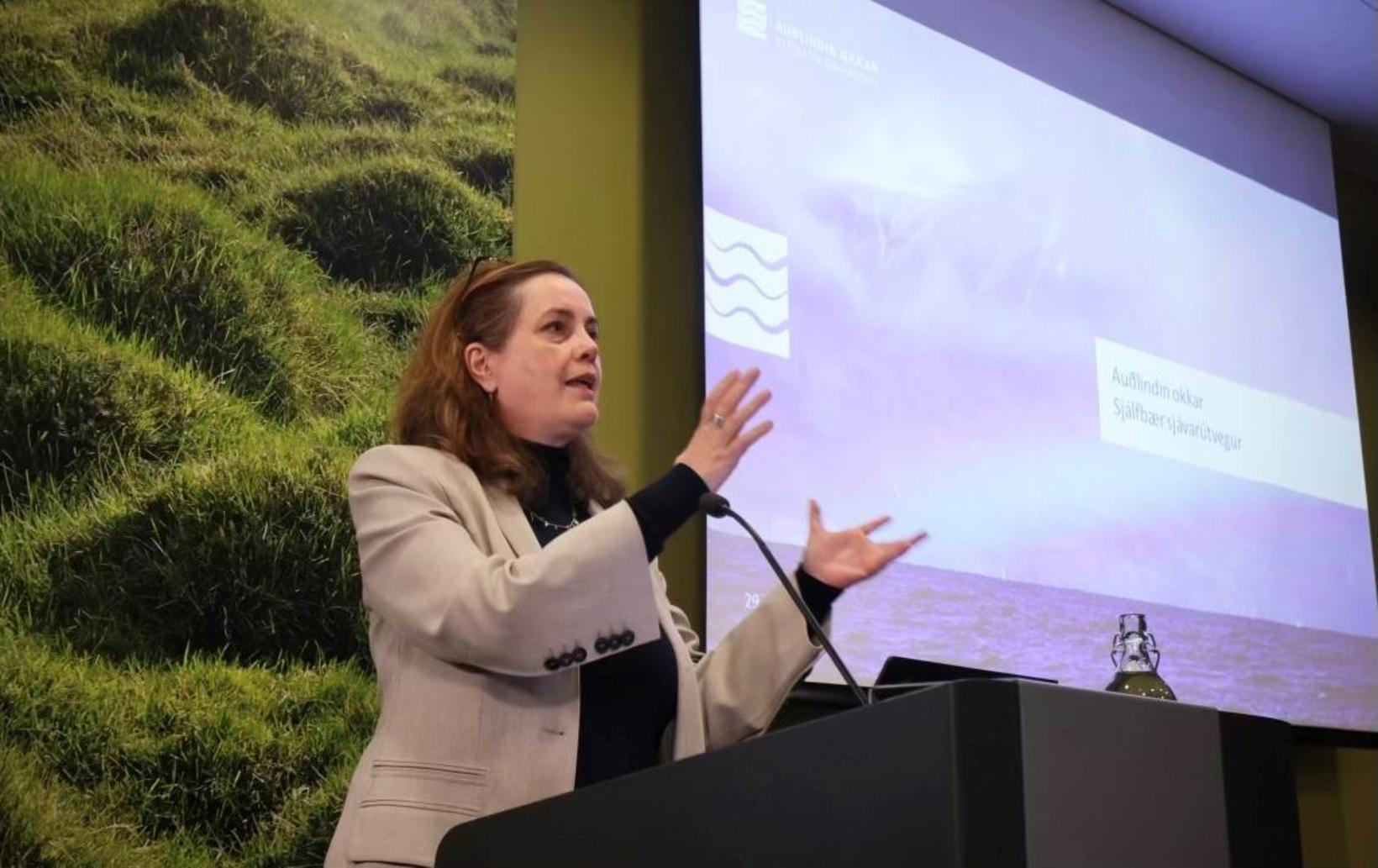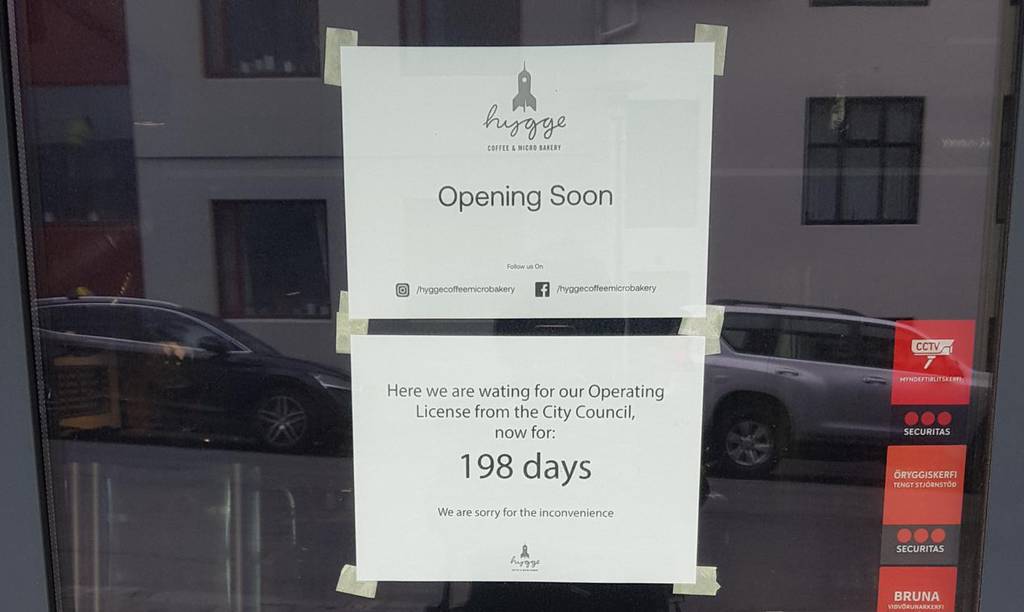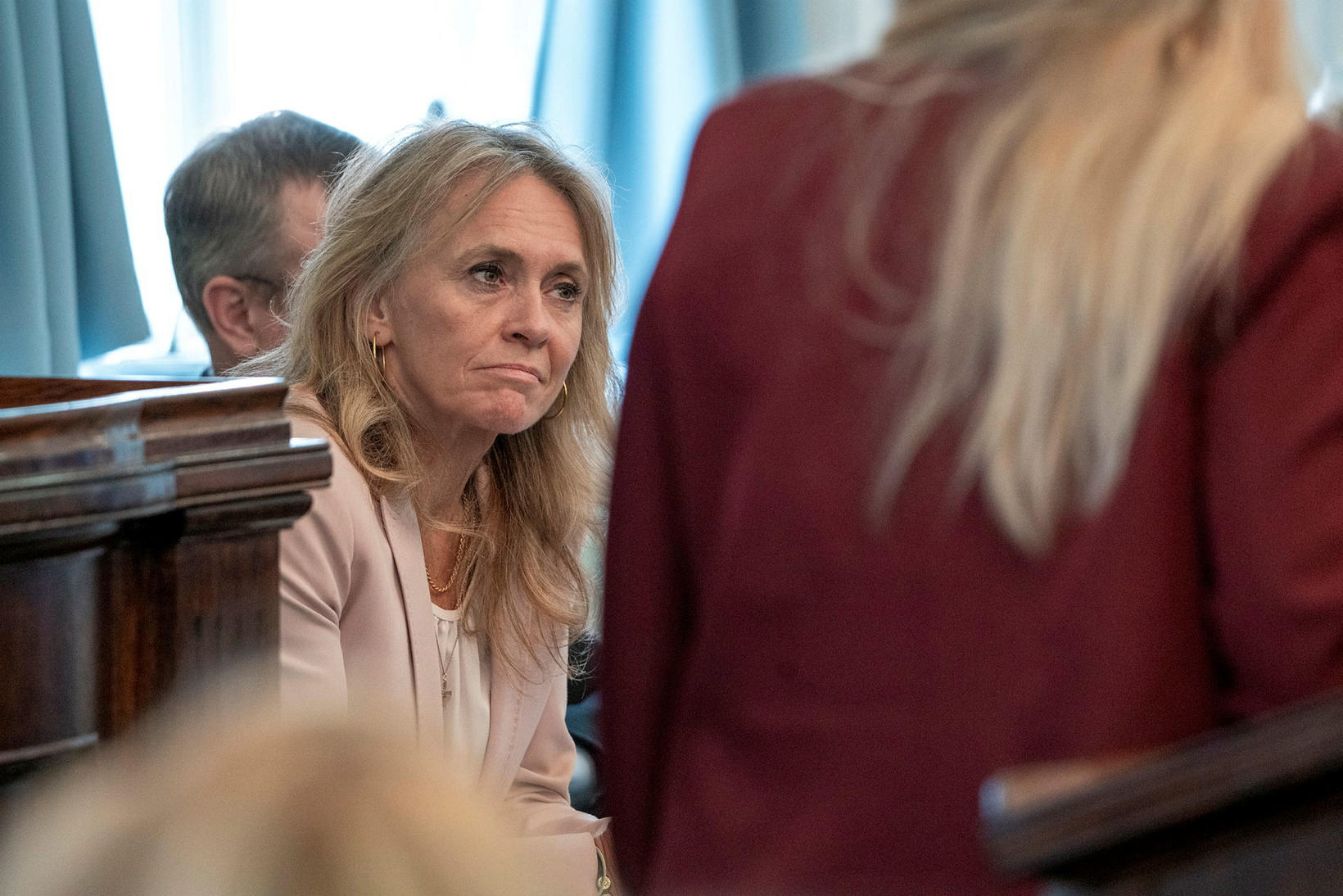Fishing fees said a check on compression

In the report of the project, Our resources – sustainable fishing industrywhich was published in August 2023, says: « The imposition of fishing fees should otherwise lead to increased optimization, as those companies that cannot meet the fee disappear from the industry either by closing down operations or by merged with other companies. »
A total of 46 individuals included the policy project through four working groups, the only project management and the only consultation committee. Svandís Svavarsdóttir, the then Minister of Food, launched « our resource » in 2022 and said she wanted to work on a consensus on the Icelandic fisheries industry.
Svandís Svavarsdóttir, Minister of Food, presents the results of our resource working groups in August 2023.
LOOK MOVIE/Cabinet: Sigurjón Ragnar
« There is clear evidence of economies of scale in the Icelandic fisheries sector and it has been shown that the imposition of fishing fees will lead to the merger of companies in the industry so that they decrease at the same time as they expand.
Furthermore, it has been « argued that the levy of fishing fees beyond its ability to pay at any time the competitiveness of the Icelandic fisheries sector is infected.
A number of people came to
The policy was to submit proposals for changes in improvement in the Icelandic fisheries sector in all areas, from supervision and taxation to fisheries management and gender equality.
The working group, which specifically dealt with fishing fees and the tax tracks of the fisheries sector, was titled « community » and served as Gunnar Haraldsson, Director of Intellecon, the presidency. In addition, the group included Catherine Chambers Research Manager at the University Center of the West Fjords, Hreiðar Þór Valtýsson Associate Professor at the Faculty of Natural Resources at the University of Akureyri, Katrín Júlíusdóttir, former MP and Minister of the Social Democratic Party and Valgerður Sólnes at the University of Iceland.
Gunnar and Katrín also sat in a so -called economic group that was made to assess the economic consequences of different routes in the current fisheries management systems and the impact of different scenarios on possible changes in the fisheries management and resource taxes. Along with them were in the group Eggert Benedikt Guðmundsson, leader of sustainable development in the Prime Minister’s Office, Ingveldur Ásta Björnsdóttir then self -employed consultant and Huginn Freyr Þorsteinsson one of the owners and advisors of Atonjl. We worked with the group Mikael Rafn L. Steingrímsson and Jón Trondur Stefánsson experts in the Ministry of Food.
The economic group wrote the eighth chapter in our resource report, which deals with the macroeconomic benefits of the fisheries management system. The group suggested that the catch system be maintained in fisheries management.
It is pointed out that the system has enabled companies to reduce over -investment in fishing and processing, deliver conditions for organized effort and reduced the burden on marine ecosystems. Problems under discussion in society in this country are therefore inherently different from what happens abroad, here have mainly been discussed how to distribute the profit from the resource utilization of the resource, but abroad is little to no profit to distribute.
Great uncertainty about rent
In the discussion, reference has been made to the resource rent as a basic imposition of fishing fees, but resource interest is alleged excess improvement that can be created in the utilization of resources. Excessive improvement refers to economic benefits that will exceed what could be expected in other utilization of capital and production factors otherwise unchanged.
The economic group said in the aforementioned report that the complex challenge was to carry out the analysis of natural resources and the proportion of fishing fees from it.
« Due to uncertainty and variability in the scope of resource interest over time, it is not considered cautious to collect all projected rent with fishing fees.
It is also said « It is worthwhile to equate the benefits or profits in certain industries and resources. Various causes.
The group drew attention to the fact that the results in the fisheries sector were dependent on numerous factors, such as the products and costs of inputs, streamlining in operations, fluctuations in stock size, catches and the króna.
When paid?
The group calculated what the state’s share had been in the resource interest and showed calculations that the share averaged 16-18 percent in the period 2010 to 2023.
« The fact that fishing fees amounted to an average of 16-18% of the calculated resource interest rate, otherwise unchanged, no indication that the current fishing fees are too low. However, Icelandic fishing is also included.
It is also said that the resource interest in the fishing industry for those currently engaged in fishing could be small or no « since they have already paid for it in price quotas. This can be added that when, and if, the resource interest is formed in the fisheries sector, there is an effect on the effects of catches or favorable exchange rates. »
Weak competitive position
Sveinn Agnarsson, professor of business administration at the University of Iceland, and Vífill Karlsson, then project manager at the Association of Local Authorities in the West, but now a professor of economics at the University of Bifröst, performed calculations and assessment of the effects of changes that were brought under the economic group.
Svein was sought and asked if he was interviewed on the potential impact of the government’s proposals Kristrún Frostadóttir on a large increase in fishing fees. « No, I don’t think, » he replied.
However, Sveinn has written about fishing fees, including in the report Status and prospects in the Icelandic fisheries and aquaculture which was prepared for the then Agriculture and Fisheries Ministry of Fisheries and published in May 2021.
In the report, which Sveinn edited and three other professors and doctors, says: “The fishing fee weakens the competitive position of the Icelandic companies, but also reflects the economic strength of the industry.
In addition, the Icelandic fisheries industry is said to stand out in the group of neighboring nations in terms of the scope and nature of grants. « In most parts of the country, direct grants to the fisheries sector are significant, but in Iceland the fishing company pay fishing fees. The fact that Icelandic fisheries companies can withstand the competition as well as it actually testifies, on the one hand, a sign of good fisheries management and the financial strength of fisheries in Iceland.






